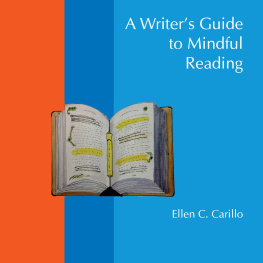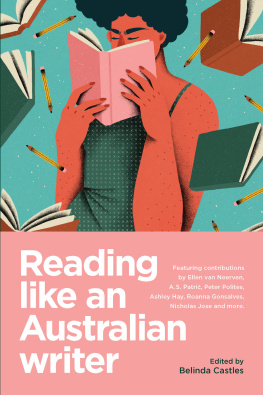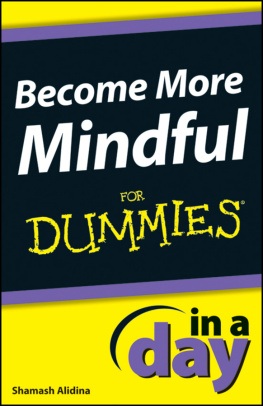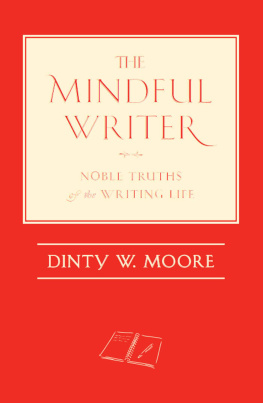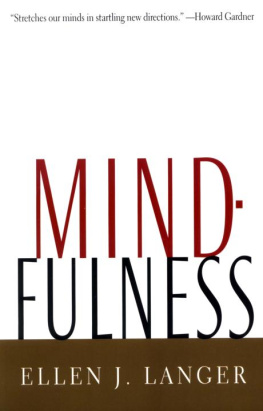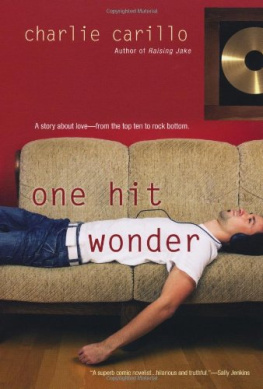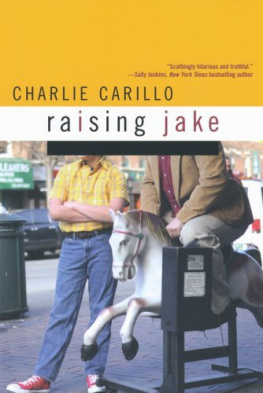Ellen C. Carillo - A Writers Guide to Mindful Reading
Here you can read online Ellen C. Carillo - A Writers Guide to Mindful Reading full text of the book (entire story) in english for free. Download pdf and epub, get meaning, cover and reviews about this ebook. year: 2017, publisher: The WAC Clearinghouse, genre: Religion. Description of the work, (preface) as well as reviews are available. Best literature library LitArk.com created for fans of good reading and offers a wide selection of genres:
Romance novel
Science fiction
Adventure
Detective
Science
History
Home and family
Prose
Art
Politics
Computer
Non-fiction
Religion
Business
Children
Humor
Choose a favorite category and find really read worthwhile books. Enjoy immersion in the world of imagination, feel the emotions of the characters or learn something new for yourself, make an fascinating discovery.
- Book:A Writers Guide to Mindful Reading
- Author:
- Publisher:The WAC Clearinghouse
- Genre:
- Year:2017
- Rating:3 / 5
- Favourites:Add to favourites
- Your mark:
- 60
- 1
- 2
- 3
- 4
- 5
A Writers Guide to Mindful Reading: summary, description and annotation
We offer to read an annotation, description, summary or preface (depends on what the author of the book "A Writers Guide to Mindful Reading" wrote himself). If you haven't found the necessary information about the book — write in the comments, we will try to find it.
A Writers Guide to Mindful Reading — read online for free the complete book (whole text) full work
Below is the text of the book, divided by pages. System saving the place of the last page read, allows you to conveniently read the book "A Writers Guide to Mindful Reading" online for free, without having to search again every time where you left off. Put a bookmark, and you can go to the page where you finished reading at any time.
Font size:
Interval:
Bookmark:
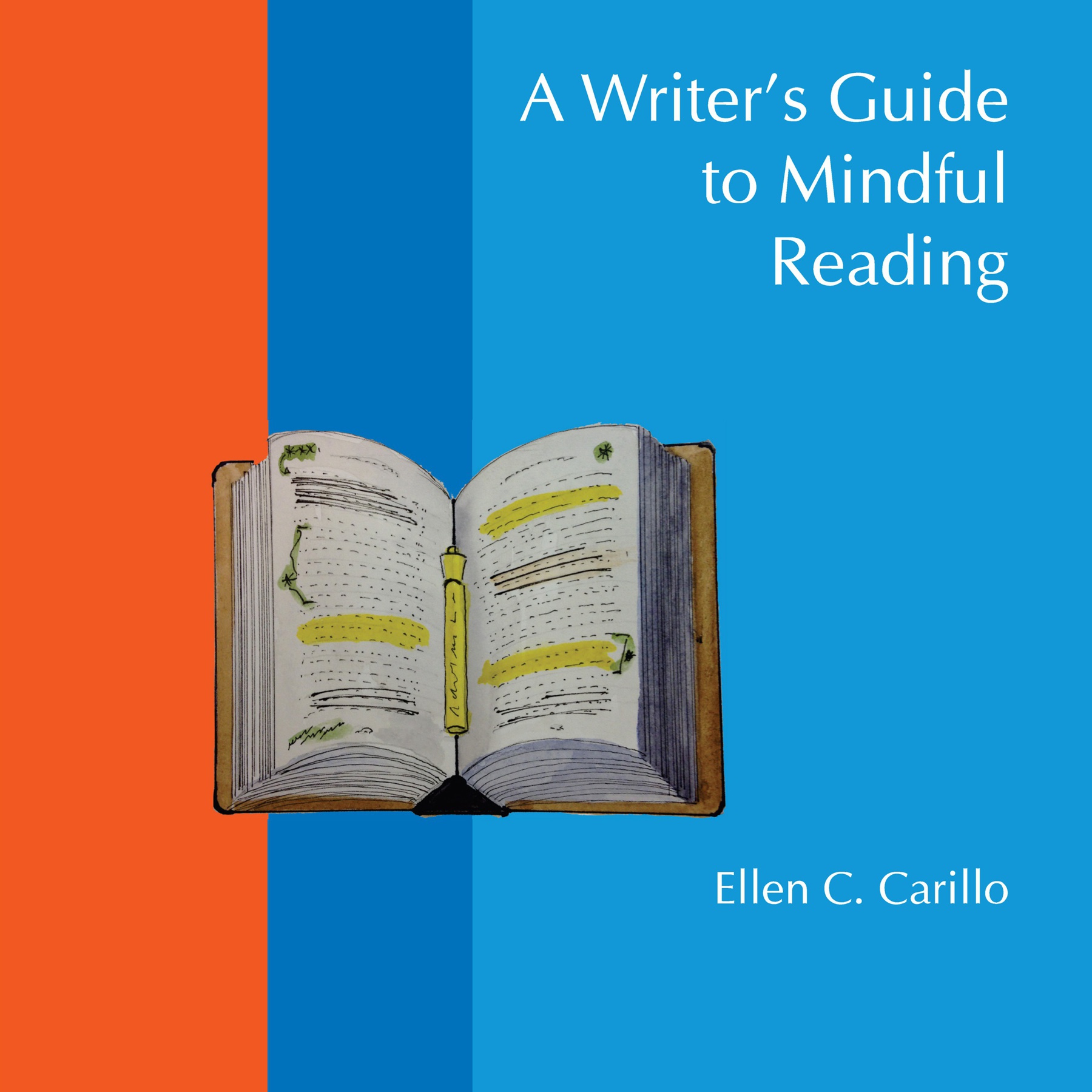
A Writers Guide to Mindful Reading
Ellen C. Carillo
University of Connecticut
The WAC Clearinghouse
wac.colostate.edu
Fort Collins, Colorado
University Press of Colorado
upcolorado.com
Boulder, Colorado
Practice and Pedagogy
Series Editor: Mike Palmquist
The Practice & Pedagogy series addresses the teaching, learning, and practice of writing in all its forms. From Joseph Williams reflections on introductions to Richard E. Youngs taxonomy of small genres to Adam Mackies considerations of technology, the books in this occasional series explore issues and ideas of interest to writers and teachers of writing.
The WAC Clearinghouse, Colorado State University Open Press, and University Press of Colorado are collaborating so that these books will be widely available through free digital distribution and low-cost print editions. The publishers and the Series editor are committed to the principle that knowledge should freely circulate. We see the opportunities that new technologies have for further democratizing knowledge. And we see that to share the power of writing is to share the means for all to articulate their needs, interest, and learning into the great experiment of literacy.
Other Books in the Series
Lillian Craton, Rene Love, & Sean Barnette (Eds.), Writing Pathways to Student Success (2017)
Charles Bazerman, Involved: Writing for College, Writing for Your Self (2015)
Adam Mackie , New Literacies Dictionary: Primer for the Twenty-first Century Learner (2011)
Patricia A. Dunn , Learning Re-abled: The Learning Disability Controversy and Composition Studies (2011)
Richard E. Young, Toward A Taxonomy of Small Genres and Writing Techniques for Writing Across the Curriculum (2011)
Joseph M. Williams, Problems into PROBLEMS: A Rhetoric of Motivation (2011)
Charles Bazerman, The Informed Writer: Using Sources in the Disciplines (2011)
Publication Information
The WAC Clearinghouse, Fort Collins, Colorado 80523-1040
University Press of Colorado, Boulder, Colorado 80303
2017 by Ellen C. Carillo, . This work is licensed under a Creative Commons Attribution-NonCommercial-NoDerivatives 4.0 International.
ISBN 978-1-64215-027-8 (PDF) | 978-1-64215-028-5 (ePub) | 978-1-60732-777-6 (pbk.)
Produced in the United States of America
Library of Congress Cataloging-in-Publication Data
Names: Carillo, Ellen C., author.
Title: A writers guide to mindful reading / Ellen C. Carillo.
Description: Fort Collins, Colorado : The WAC Clearinghouse ; Boulder, Colorado : University Press of Colorado, [2017]
Identifiers: LCCN 2017039386| ISBN 9781607327776 (pbk.) | ISBN 9781607327783 (ebook)
Subjects: LCSH: Reading (Higher education) | English languageRhetoricStudy and teaching (Higher) | Academic writingStudy and teaching (Higher) | Reading comprehensionStudy and teaching (Higher) | College reading improvement programs.
Classification: LCC LB2395.3 .C36 2017 | DDC 428.40711dc23
LC record available at https://lccn.loc.gov/2017039386
Copyeditor: Brandy Bippes
Designers: Mike Palmquist and Ashley Freeman
Cover Art: Joseph A. Gerber
Series Editor: Mike Palmquist
The WAC Clearinghouse supports teachers of writing across the disciplines. Hosted by Colorado State University, and supported by the Colorado State Univeristy Open Press, it brings together scholarly journals and book series as well as resources for teachers who use writing in their courses. This book is available in digital formats for free download at wac.colostate.edu.
Permissions
Charles Bazerman, A Relationship between Reading and Writing: The Conversation Model. Copyright 1980 by the National Council of Teachers of English. Reprinted with permission.
Mike Bunn, Motivation and Connection: Teaching Reading (and Writing) in the Composition Classroom. Copyright 2013 by the National Council of Teachers of English. Reprinted with permission.
David A. Jolliffe and Allison Harl, Studying the Reading Transition from High School to College: What Are Our Students Reading and Why? Copyright 2008 by the National Council of Teachers of English. Reprinted with permission.
Anthony Petrosky, From Story to Essay: From Reading to Writing. Copyright 1982 by the National Council of Teachers of English. Reprinted with permission.
Mariolina Salvatori, Reading and Writing a Text: Correlations between Reading and Writing Patterns. Copyright 1983 by the National Council of Teachers of English. Reprinted with permission.
Robert Scholes, The Transition to College Reading. Copyright 2002 by the National Council of Teachers of English. Reprinted with permission.
Robert J. Tierney and David Pearson, Toward a Composing Model of Reading. Copyright 1983 by the National Council of Teachers of English. Reprinted with permission.
Stacey Waite, On the Occasion of Being Mistaken for a Man by Security Personnel at Newark International Airport from Butch Geography , published by Tupelo Press. Copyright 2013 by Stacey Waite. Used with permission.
Sarah Davis, The Blurred Lines Effect: Popular Music and the Perpetuation of Rape Culture. Copyright 2014 by Sarah Davis. Used with permission.
OUP Blog Entries. Oxford University Press. Used with permission.
Wendell Berry, Environmentalists Have Given Up too Much by Not Being Radical Enough. Copyright Grist.org. Used with permission.
Amelia Urry, If you Think Technology Has no Place in the National Parks, Think Again. Copyright Grist.org. Used with permission.
The Pace of Modern Life. Copyright xkcd.com. Used with permission.
Derrick Jensen, Forget Shorter Showers. Copyright Orion Magazine . Used with permission.
Introduction
What is Mindful Reading?
Before we get to mindful reading , lets answer what at first might seem like the simpler question: What is reading? Reading is something we all do every daywe read books, street signs, text messages, blogs, product labels, billboardsbut have you ever stopped to think about what happens when we read? How does your brain process the marks your eyes see? How are these marks understood as letters, words, and sentences that have meaning? Research has shown that when we read, different regions and systems in the brain play different roles. Neuroscientists at Princeton University, Tanja Kassuba and Sabine Kastner, explain that the visual system and language regions of the brain work together to translate the marks we see on a page into words we can understand. Did you know that our eyes hardly move as they do all of this work? We might think that as we read our eyes move smoothly along the words as we read them, but, instead, our eyes remain largely motionless since eyes can only see when they are in this state. Between these motionless periods, our eyes move very rapidly, jumping along the lines, again with little reference to the words before us (Rayner).
Cognitive psychologists, who research the brain, have conducted various experiments to study the power of reading. For example, in his book Such Stuff as Dreams: The Psychology of Fiction , Keith Oatley argues that reading fiction (stories) provides such a vivid simulation of real life that the brain processes a detailed description of an experience one may find in a novel in the same way it would process the actual experience. Equally interesting is that Raymond A. Mar and his colleagues, including Oatley, conducted experiments that ultimately showed that people who read fiction are more empathetic than those who do not. Mar and his colleagues argue that this is the case because fiction offers the unique opportunity to identify with characters, something that fiction readers take with them beyond the text and into real life situations.
Font size:
Interval:
Bookmark:
Similar books «A Writers Guide to Mindful Reading»
Look at similar books to A Writers Guide to Mindful Reading. We have selected literature similar in name and meaning in the hope of providing readers with more options to find new, interesting, not yet read works.
Discussion, reviews of the book A Writers Guide to Mindful Reading and just readers' own opinions. Leave your comments, write what you think about the work, its meaning or the main characters. Specify what exactly you liked and what you didn't like, and why you think so.

